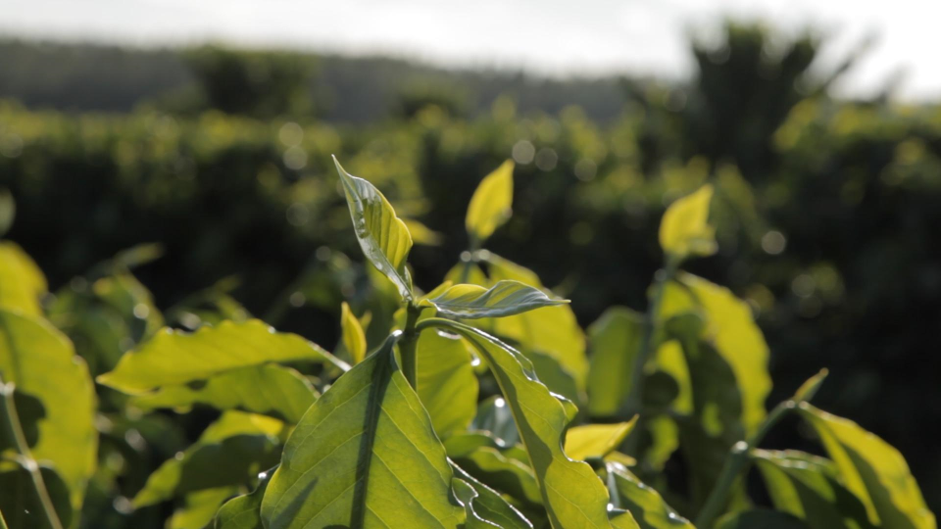Arabica coffee—from Fine Cups to Rio Minas, learn about the properties of our Brazilian coffees
We don’t just sell green Arabica coffee—we bring the tradition and quality of Brazilian coffee to each continent.
Atlantica Coffee exports green Arabica coffee beans in the “Superior” and “Commercial” lines from different regions of Brazil, such as Matas de Minas, South Minas, Cerrado, Mogiana, and Bahia.
We supply the best green Arabica coffee beans to suit the preferences of our partners and their markets, including washed and semi-washed, natural, fine cups, very good cups, good cups, and Rio Minas.
Our offices are strategically located in Minas Gerais’ main cities: Varginha, Manhuaçu, Alto Jequitibá, Caparaó, in addition to our administrative office in Belo Horizonte, the state capital. The ideal combination of temperature, soil, altitude, and technology make Minas Gerais an expert producer of Brazilian coffees of various types.
Arabica coffee

Atlantica Coffee exports coffee of the Coffea arabica L. species. Within the Coffea genus, Arabica coffee beans offer the greatest potential for quality, an intense aroma, and a range of flavors.
Arabica coffee is one of the most cultivated species in the world and is the most cultivated in Brazil. Originally from Ethiopia, Arabica coffee found favorable edaphoclimatic conditions in Brazil, which has been its leading producer for 150 years. Arabica is grown mainly in the states of Minas Gerais, Espírito Santo, São Paulo, Bahia, and Paraná.
In Brazil, the coffee harvest usually takes place between May and September, depending upon the region. Coffea arabica L. varieties include Bourbon, Catucaí, Catuaí, Topázio, Mundo Novo, Rubi, and others.
Brazilian coffees

The story of Atlantica is told through the quality of its beans and the relationships between the people involved in the coffee production process. In its 20 years on the market, Atlantica has developed 9 coffee lines to satisfy the preferences of clients around the world, each with the unmatched taste and aroma of Brazil. Each coffee transports the senses on a journey of authentic taste.
The unique and luxuriant beauty of Brazilian precious stones inspired the names of our commercial line coffees: Safira, Agata, Esmeralda, Turquesa, Turmalina, Rubi, Topazio, and Onix. Together, they represent the variety of flavors and aromas of Brazilian coffees. We also developed a Superior coffee line, Rosa Morena, to attend to the most discriminating of palates.
Washed and Semi-Washed

Cups of washed and semi-washed coffee are smoother and more uniform, with a noted acidity.
Safira: Safira coffee is synonymous with sweetness. A washed (wet-processed) Arabica coffee of medium acidity, consistent body; a clean, smooth drink. Presents uniform color and roasting characteristics.
Turquesa: Turquesa coffee is synonymous with balance. Semi-washed (wet-processed) Arabica coffee, balanced acidity and body, clean cup and free of defects. Uniform roasting characteristics.
Natural – Fine cups

Fine cup coffee beverages have highly-valued characteristics, such as a clean cups, medium acidity, medium body, and a slightly smooth aftertaste. Natural Brazilian coffee gives a blend harmony by increasing the texture of the beverage and often neutralizing the acidity in blends comprised of Brazilian coffees subjected to other processes.
Rosa Morena: Natural Arabica coffee from the Superior line. Direct from Cerrado Mineiro and Alta Mogiana, it has a symmetrical combination of smooth acidity, delicate sweetness, a balanced body, and a predominately floral aroma.
Agata: Natural Arabica coffee of noted sweetness. Fine cup, with a balanced acidity, clean cups, good body, and smooth aftertaste. The sensory perception is of a full-bodied Brazilian coffee that fills the whole mouth, giving the sensation of smoothness.
Emerald: Natural Arabica coffee with remarkable acidity. Fine cup, medium body, strictly soft, clean, uniform cups.
Natural – Good cup
Good cup coffee beverages are light-bodied with a low acidity and a slightly bitter aftertaste. Natural coffee generally gives harmony to a blend, increasing the texture of the beverage and neutralizing the excessive acidity of other coffees.
Turmalina: Natural coffee, good cup, strictly soft. It may present non-uniform cups and a slightly bitter aftertaste. This coffee is usually used to provide harmony to a blend.
Rubi: Naturally-processed, Arabica coffee, good cup, with cup defects (up to 2 Rioy cups in 10).
Other Natural

Topazio: Natural coffee; presents hard, rioy cups and up to two rio cups with a bitter finish.
Onix: Natural coffee, Rio Minas, with a characteristic flavor. Its strong flavor is part of the culture and tradition of many countries, particularly in Eastern Europe and the Middle East.
Sustainability

Brazil is a world leader in coffee production and exports. A growing number of farmers strive to both increase their yields and grow quality coffees that meet social, economic, and environmental criteria worldwide.
Certifications attest to coffee growers’ adherence to good agricultural, environmental, social, and food security practices and allow the traceability of beans.
Through our partnerships with certification groups that offer numerous advantages to coffee growers who meet these standards, Atlantica Coffee is a part of the journey to sustainability. Together, we work towards a common goal: delivering the best Brazilian coffee to consumers.
We work with the following certifications and programs:
– UTZ
– Rainforest Alliance
– C.A.F.E. Practices – Starbucks
– 4C
– Certifica Minas



